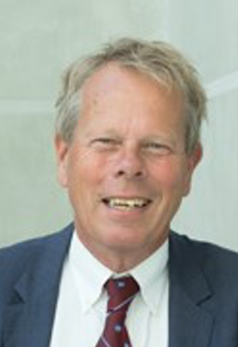
PERSONAL EXPERIENCE
Mathias Uhlen received his PhD at the Royal Institute of Technology (KTH), Stockholm, Sweden in 1984. After a post-doc period at the EMBL in Heidelberg, Germany, he became professor in microbiology at KTH in 1988. His research is focused on protein science, antibody engineering engineering and precision medicine and range from basic research in human and microbial biology to more applied research, including clinical applications in cancer, infectious diseases, cardiovascular diseases, autoimmune diseases and neurobiology. His research has resulted in more than 650 publications. His group was the first to describe a number of innovations in science including:
- engineered protein A and protein G for purification of antibodies
- affinity tags for purification of recombinant fusion proteins
- solid phase methods based on magnetic beads for DNA handling using the biotin – streptavidin system
- Pyrosequencing leading to the first next generation DNA sequencing instrument (454 / Roche)
- Affibodies – protein binders aimed for therapeutic applications
Since 2003, he has led an international effort to systematically map the human proteome and transcriptome to create a Human Protein Atlas using antibodies and various omics technologies. This effort has so far resulted in five major launches all published in the journal Science :
- The Tissue Atlas showing the distribution of proteins across human tissues and organs
- The Cell Atlas showing the subcellular location of human proteins in single cells
- The Pathology Atlas showing how cancer patient survival is tied to RNA and protein levels
- The Blood Atlas showing the expression of proteins in human immune cells and also mapping the proteins in human blood
- The Brain Atlas showing the proteins expressed in the different parts of human, pig and mouse brains.
He is member of the National Academy of Engineering (NAE) in USA, the Royal Swedish Academy of Science (KVA), the Swedish Academy of Engineering Science (IVA) and the European Molecular Biology Organization (EMBO). He is the President of the European Federation of Biotechnology. From 2010-2015, he was the founding Director of the Science for Life Laboratory (SciLifeLab) which is a national center for molecular bioscience.
Career
1979 M.Sc. in Chemical Engineering, KTH, Stockholm, Sweden.
1984 Ph.D. Dept. of Biotechnology, KTH, Stockholm, Sweden
1985-86 Post-doc, EMBL, Heidelberg, Germany
1988- Full professor in Biotechnology, KTH, Stockholm, Sweden
1999-2001 Vice-President KTH, responsible for external relations
2003- Director of the Human Protein Atlas (HPA) program
2010-2015 Founding Director, Science for Life Laboratory (SciLifeLab)
2012-2020 Professor (20%), Danish Technical University (DTU), Denmark
2019- Guest professor (25%) at the Karolinska Institutet
2019- Member of the Board of Directors for the Swedish Research Council
Recognition
- Member of the National Academy of Engineering (NAE), USA, 2013-
- Member of the Royal Swedish Academy of Science (KVA), 1993-
- Member of the Swedish Academy of Engineering Science (IVA), 1992-
- Member of European Molecular Biology Organization (EMBO), 1995-
- President of the European Federation Biotechnology (EFB), 2014-
- Chairman of the Scientific Advisory Board of UniProt, 2013-2016
- IVA Gold Medal, 2003, from the Royal Academy of Engineering Sciences
- H.M. The King’s Medal, 2004, from His Majesty the King of Sweden
- HUPO Distinguished Award, Long Beach, USA, 2006 from HUPO
- ABRF Award from the Assoc. Biomolecular Resources Facilities in 2009
- Honorary Doctor, Chalmers University, Gothenburg in 2011
Key references
- Sjöstedt et al (2020) “An atlas of the human, pig and mouse brain” Science 367 eaay5947
- Uhlen et al (2019) “A genome-wide transcriptomic analysis of protein-coding genes in human blood cells” Science 366 (6472): eann9198
- Uhlén et al (2019) “The human secretome” Science Signal. 12(609)
- Uhlen et al (2017) “A pathology atlas of the cancer transcriptome” Science 357 (6352): eaan2507
- Uhlen et al (2016) “A proposal for antibody validation” Nature Methods, 13: 823-7
- Uhlen et al (2015) “Tissue-based map of the human proteome” Science 347: 126041
- Uhlen et al (2010) “Towards a knowledge-based Human Protein Atlas” Nature Biotechnology 28(12): 1248-50.
- Ronaghi, Uhlén and Nyrén (1998) “A sequencing method based on real-time pyrophosphate” Science 281: 5375.
- Ståhl et al (1988) “Solid phase DNA sequencing using the biotin-avidin system” Nucleic Acids Res 16: 3025-38
- Moks et al (1987) “Large–Scale Affinity Purification of Human Insulin–Like Growth Factor I from Culture Medium of Escherichia Coli” Nature Biotechnology 5 (4), 379-382
